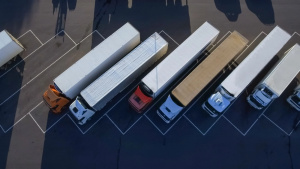Problems such as data breaches, skyrocketing storage costs, lack of ownership, and censorship have continually plagued centralized data storage. With technological advancements and increased awareness, traditional data repository will soon pave the way to blockchain data storage.
And it’s not just the financial sector that is interested in this new technology. As data becomes increasingly valuable, more enterprises, organizations and government agencies will turn to decentralized cloud storage for better security.
In this article, we’ll tell you why you should switch to decentralized data storage, how decentralized storage and blockchain technology work, and the advantages of using blockchain.
Why you should use a decentralized system to store your data?
Rather than a single entity or company storing all the data, a decentralized network involves storing data in several locations by users who receive incentives (tokens) to keep data accessible. Individuals host the servers, and smart contracts are used to guarantee honesty. Some reasons why enterprises should use decentralized data networks instead of centralized systems are:
#1 To improve their data security and privacy
According to a survey by PWC, 85% of respondents cited privacy risks and cybersecurity as the most significant data risk factors. Decentralized networks employ a technique known as sharding to improve security, which means files are broken down into smaller parts and stored across different computers/ nodes. As such, no one stores the entire document. Moreover, files are encrypted automatically, and only the owner holds the encryption key.
#2 To bring down storage costs
There is no cost of infrastructure when it comes to decentralized storage. This system of data storage utilizes marketplaces that are already there. Further, the high competition among nodes has ensured fairer market prices.
#3 To eliminate the risk of file interference or loss
Data stored in decentralized networks is immutable. This simply means that original copies of your data are stored in multiple places with no one party having control over it. It is, therefore, difficult for one person to make important alterations to the data. It also ensures a lesser risk of file loss.
#4 To store large amounts of data
In 2018, IDC released a report predicting that global data will grow to 175 zettabytes by 2025, up from 33 zettabytes. Therefore, there will be a higher demand for large storage at an affordable rate. Decentralized networks have massive storage marketplaces that can be scaled up when needed or down when not in use, thus making them highly flexible and convenient.
#5 To transfer or retrieve documents faster
In a decentralized network, data is handled by nearby peers and utilizes local bandwidth, thereby making data transfer much faster than in centralized storage.
Combining blockchain technology and decentralized data management
How does blockchain work?
Blockchain is a chain of blocks that contain peculiar information and are grouped in a network. Unlike a centralized system (where all computers are linked with the central one), blockchain represents decentralization (computers are linked to each other and create a P2P network without a central server).
Blockchain architecture is comprised of the following components:
- nodes (node is an any device connected to the blockchain);
- transactions (they keep records and information);
- blocks (they hold blockchain data structure);
- chain (block sequence);
- miners (these are nodes that verify the process);
- consensus (rules that validate transaction).
Blockchain data security
How does blockchain keep data secure?
Blockchain is believed to be a cybersecurity shield. It is secured through cryptography, thus transactions are performed only via personal digital signature. Blockchain also makes user’s authentication possible without password protection. As the network is decentralized, the transaction’s integrity is verified without central server making an attack mathematically impossible.
What is blockchain data storage?
Blockchain data storage is similar to a decentralized cloud storage network. It also employs a distributed storage system and, as such, is secure, private, and fast. One way that enterprises can use blockchain technology is in transferring documents from different locations securely. However, blockchain works best when used to store transactional information.
Though blockchain data storage is a trustworthy system, it can only store small amounts of transactional data. Large files can’t be stored in blocks. A decentralized data network is needed to solve this shortcoming. Developers in blockchain are, therefore, making use of storage marketplaces to build blockchain apps that can store and process large amounts of data.
Benefits of blockchain data storage
Why should your business utilize blockchain in storing and managing your data? Here are some benefits you stand to gain:
#1 Transparent
Block ledgers are more transparent and easier to verify than a cloud storage provider.
#2 Cheaper than cloud solutions
Storing data in blockchain cost a fraction of the price that traditional cloud storage providers. At about 8% of the cost per terabyte of what Amazon S3 charges, blockchain technology offers massive cost reduction.
#3 Verifiable and tamper-resistant
Block technology eliminates the need to have a central or third-party authority as transactions or verified and synchronized automatically. Since transactional data is stored in multiple places, this system is also relatively tamper-proof.
#4 Zero purchase equipment maintenance budget
No storage equipment is needed when you want to store your data in a blockchain. Moreover, you will not need to maintain the infrastructure or oversee the process.
#5 Availability of redundant copies
Data stored in a blockchain is segmented into shards and replicas of each shard are created and distributed to different nodes. Therefore, each file you store on the blockchain will have several other security copies.
Summing it up
Decentralized cloud storage and cloud computing systems carry some level of risk since they involve third parties. However, with decentralized blockchain storage, this risk is easily mitigated through sharding and automated encryption. With the increasing interest in decentralized storage technology and how it can be combined with blockchain, the existing cloud storage industry might become obsolete within the next few years.






